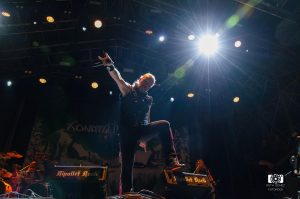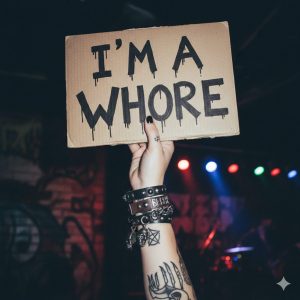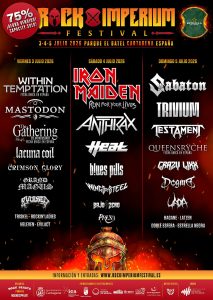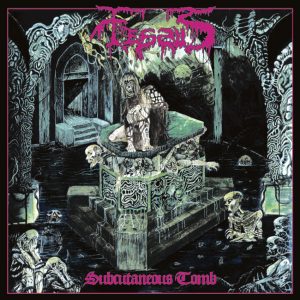Deconstructing Orphaned Land’s Self-Indulgent Statement: A Call for Genuine Solidarity with Palestine

By: Ana Moreno
Orphaned Land, an Israeli band currently touring Spain, has issued a statement criticizing Prou Complicitat, a Catalan organization that has been fighting against Israeli apartheid for years. This statement not only undermines the valuable work of an entity committed to the Palestinian cause but also perpetuates a self-serving narrative that blurs accountability and delegitimizes cultural boycotts as a tool of resistance. Let us analyze why their stance is not only flawed but deeply problematic in the context of the genocide suffered by the Palestinian people.
The Work of Prou Complicitat: An Exemplary Path
Since its inception, Prou Complicitat has worked tirelessly to expose the ties between institutions, businesses, and cultural actors with the Israeli apartheid regime. Following the guidelines of the international BDS movement (Boycott, Divestment, and Sanctions), Prou Complicitat has developed educational and awareness campaigns to inform venues, promoters, and the general public about the ethical implications of supporting entities and artists who justify or normalize Israel’s genocidal policies. These actions are not about intimidation, as Orphaned Land claims, but about inviting reflection and moral consistency.
Orphaned Land accuses this organization of “pressuring” venues to cancel concerts, but what Prou Complicitat actually does is inform these institutions about the band’s connection to a Zionist narrative and public statements that directly or indirectly justify Israel’s colonial policies. This type of work is fundamental in the global struggle for human rights and the end of apartheid, and it deserves recognition, not vilification.
A Statement Full of Contradictions
Orphaned Land’s statement is riddled with contradictions and problematic elements that warrant close scrutiny. Among the most relevant points:
1. Deflecting Responsibility with “Dialogue” as an Excuse for Inaction
The band insists that dialogue and cooperation are the only valid paths to peace, dismissing boycotts as “failures.” This rhetoric is not only false but also disregards decades of Palestinian resistance and the success of the BDS movement in isolating Israel culturally, academically, and economically in various spaces. To suggest that dialogue can emerge in an apartheid context without international pressure is a way of perpetuating the status quo.
2. Criticizing BDS While Avoiding Self-Criticism
Nowhere in their statement does Orphaned Land mention how their actions or words may have contributed to Israel’s narrative. Instead, they focus on criticizing activists who, with courage and consistency, demand that artists like them take a clear stance against apartheid. This demonstrates a lack of self-awareness that starkly contrasts with their grandiose declarations of solidarity with Palestinians.
3. Empty and Performative Solidarity
Orphaned Land claims to show solidarity with Palestinians, but they fail to specify how. They criticize the BDS movement—a legitimate tool of resistance—and boast about “wearing a keffiyeh for decades” as if that constitutes effective political action. Solidarity is not about wearing an accessory or promoting abstract messages of peace while avoiding outright condemnation of Israel’s genocidal state. It is about taking clear positions, rejecting complicity, and, in this case, respecting and amplifying Palestinian voices calling for a cultural boycott.
4. The “Both Sides” Narrative
The insistence that “both sides” are responsible for the conflict ignores the power dynamics inherent to Israeli apartheid. There is no symmetry between the oppressor and the oppressed. Framing the situation as a mere “conflict” between two equal sides perpetuates the Zionist narrative that seeks to dilute Israel’s responsibility.
5. Deflecting Attention to Hamas
Orphaned Land has repeatedly shifted the conversation toward criticizing Hamas—a typical strategy to justify Israeli actions and divert focus from apartheid. Such statements, in interviews and public remarks, serve to reinforce Israeli propaganda that criminalizes Palestinian resistance.
Orphaned Land’s Actions That Reinforce Zionism
Orphaned Land has engaged in numerous activities that demonstrate their alignment with Israel’s official narrative. Among the most notable:
- Public statements by Kobi Farhi, the band’s leader, justifying Israel’s actions and describing the country as a democracy surrounded by enemies.
- The band’s consistent refusal to openly condemn Israeli apartheid, instead focusing on criticizing Hamas and equating colonial violence with Palestinian resistance.
- Their frequent use of the “complexity” of the conflict as an argument to avoid condemning Israel’s genocidal actions—a common tactic to dilute the responsibility of the oppressive state.
A Call for Genuine Solidarity
Orphaned Land’s statement exemplifies how artists can instrumentalize music and an abstract discourse of peace to evade their ethical responsibilities. Instead of criticizing those who actively work to dismantle apartheid, they should listen to the demands of the Palestinian people and the BDS movement.
Cultural boycott is not a tool of hatred or division, as they claim, but a legitimate way to pressure Israel to end its colonial policies. If Orphaned Land truly believes in peace and justice, they should join this struggle instead of criticizing it.
From Queens of Steel, we want to thank organizations like Prou Complicitat for their tireless work in defense of human rights. Their efforts not only shed light on the genocide in Palestine but also remind us that we all have a role to play in this struggle. Music has the power to transform, but only when aligned with the principles of justice and human dignity. Orphaned Land still has much to learn about this.








